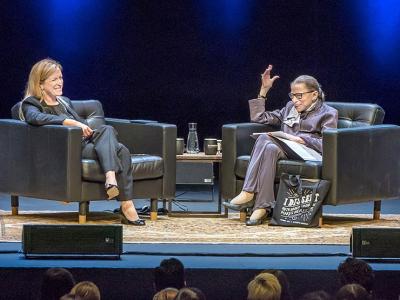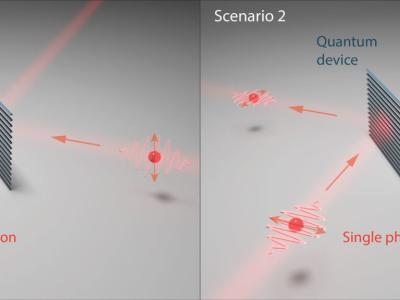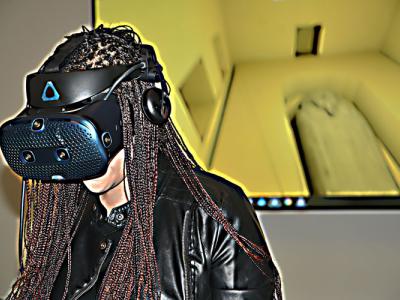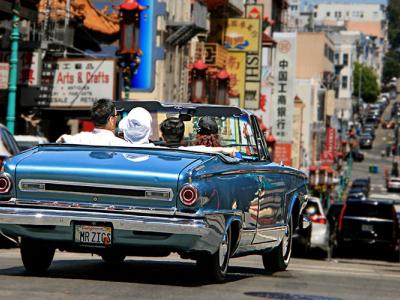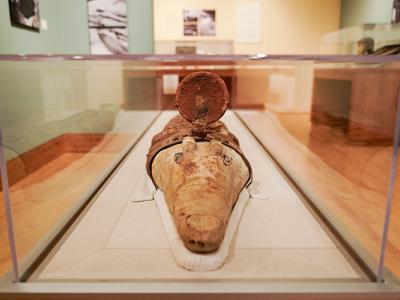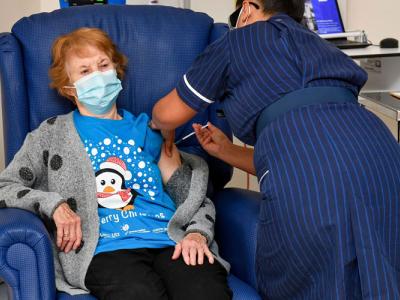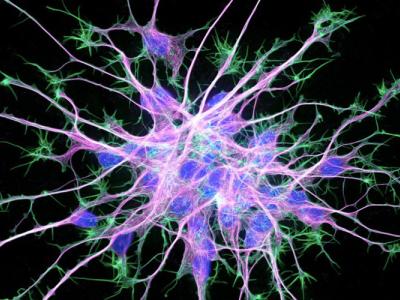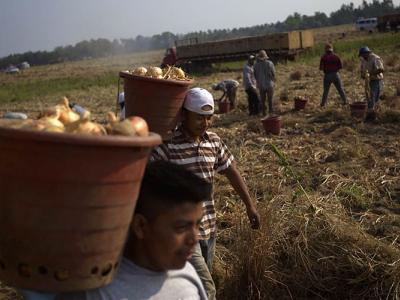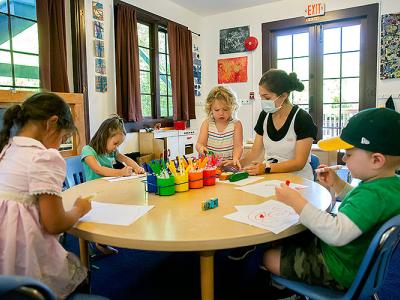U.S. Supreme Court Justice Ruth Bader Ginsburg looms large in Berkeley Law Professor Amanda L. Tyler’s life as a boss, a mentor, a role model — and, now, a co-author.
Research News
Learn more about UC Berkeley's researchers and innovators.
Showing 1121 - 1136 of 3512 Results
Researchers at the University of California, Berkeley, have developed a new device that allows at-will control over the quantum behavior of single particles of light, or photons, a proof-of-principle demonstration that could form the basis of new optics-based gates for powerful quantum technologies.
In recognition of “contributions that advance science and deepen public understanding of human behavior and social dynamics,” Rucker Johnson, the Chancellor’s Professor at the Goldman School of Public Policy, has been named a fellow in the 2021 class of the American Academy of Political and Social Science (AAPSS).
A year ago, just after Bay Area governments imposed a shelter-in-place order to check the spread of a mysterious new coronavirus, Cristina Banks worried about how she would work from home. She would miss her office at UC Berkeley’s Haas School of Business. She would miss interacting with colleagues and students. She would miss her books and her papers. Banks directs the Interdisciplinary Center for Healthy Workplaces, a global research center at Berkeley, and even in the ¬surpassing strangeness of the past year, she has continued to observe and analyze how the pandemic is changing our work — and changing us.
Determining how rapidly the universe is expanding is key to understanding our cosmic fate, but with more precise data has come a conundrum: Estimates based on measurements within our local universe don’t agree with extrapolations from the era shortly after the Big Bang 13.8 billion years ago. A new estimate of the local expansion rate — the Hubble constant, or H0 (H-naught) — reinforces that discrepancy.
If playing the video game Assassin’s Creed Origins is as close as you’re likely to get to a pharaoh’s tomb — especially in this time of pandemic-thwarted travel — look no further than UC Berkeley for an expedition into an Egyptian burial chamber that won’t expose you to a mummy’s curse.
New research released today by the UC Berkeley California Policy Lab finds that, contrary to some news media reports suggesting a mass exodus from California, most moves in 2020 happened within the state. Exits from California in 2020 largely mirrored historical patterns, while the biggest change was a decrease in people moving into the state.
More than 100 years after their discovery, 19 mummified crocodiles are part of the Egyptian collection at the Phoebe A. Hearst Museum of Anthropology at UC Berkeley. These mummies, along with a collection of papyri held by the Center for the Tebtunis Papyri at the Bancroft Library, give us clues about how everyday ancient Egyptians lived and how far they went to appease crocodiles, hoping their devotion would win them some good will toward humankind.
To boost the number of students from underrepresented backgrounds in the Maternal and Child Health (MCH) field and improve conduits to the MCH workforce, UC Berkeley’s Maternal, Child and Adolescent Health (MCAH) Program at the School of Public Health has been awarded the MCH Leadership, Education, and Advancement in Undergraduate Pathways (LEAP) Training Program grant through the Maternal and Child Health Bureau within the federal Health Resources and Services Administration.
Challenging the idea that older people with shorter life expectancies should rank lower in coronavirus immunization efforts, new UC Berkeley research shows that giving vaccine priority to those most at risk of dying from COVID-19 will save the maximum number of lives, and their potential or future years of life.
Researchers at the University of California, Berkeley, have found a new way to harness properties of light waves that can radically increase the amount of data they carry. They demonstrated the emission of discrete twisting laser beams from antennas made up of concentric rings roughly equal to the diameter of a human hair, small enough to be placed on computer chips.
The University of California, San Francisco (UCSF) and UC Berkeley today announced a long-term research partnership with Genentech, a member of the Roche Group, and its parent company, Roche Holding AG, to speed the development of new therapeutics for debilitating brain diseases and disorders of the central nervous system (CNS), such as Alzheimer’s, Parkinson’s, Huntington’s, ALS and autism. UCSF and UC Berkeley will receive up to $53 million from Genentech over the course of the 10-year collaboration.
The small, furry ancestors of all primates — a group that includes humans and other apes — were already taking to the trees a mere 100,000 years after the mass extinction that wiped out the dinosaurs and most other terrestrial animals, according to a new analysis of fossil teeth in the collections of the University of California Museum of Paleontology (UCMP).
Californians not only pay some of the highest electricity rates in the country, but they pay two-to-three-times more for power than it costs to provide, according to a new report by researchers at the Energy Institute at Haas and the non-profit think tank Next 10.
Voters of color in California — especially Latinx and Native American people — face disproportionate risks during the coronavirus pandemic and are far more worried than white voters about job and income loss and access to medical care, according to a new poll by UC Berkeley’s Institute of Governmental Studies (IGS).
The U.S. child care system is collapsing under the pressures of the COVID-19 pandemic, with tens of thousands of low-paid workers losing their jobs and hundreds of centers forced to close or scale back operations, according to new report from the UC Berkeley Center for the Study of Child Care Employment (CSCCE).

